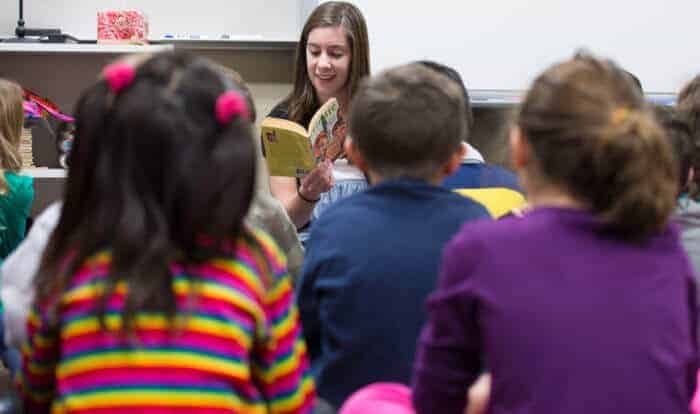When preschoolers spend time around one another, they tend to take on each others’ personalities, indicates a new study by Michigan State University psychology researchers.
The study, published online in the Journal of Personality and Social Psychology, suggests personality is shaped by environment and not just genes.
“Our finding, that personality traits are ‘contagious’ among children, flies in the face of common assumptions that personality is ingrained and can’t be changed,” said Jennifer Watling Neal, associate professor of psychology and co-investigator on the study. “This is important because some personality traits can help children succeed in life, while others can hold them back.”
The researchers studied two preschool classes for an entire school year, analyzing personality traits and social networks for one class of 3-year-olds and one class of 4-year-olds.
Children whose play partners were extroverted or hard-working became similar to these peers over time. Children whose play partners were overanxious and easily frustrated, however, did not take on these particular traits. The study is the first to examine these personality traits in young children over time.
Emily Durbin, study co-investigator and associate professor of psychology, said kids are having a bigger effect on each other than people may realize.
“Parents spend a lot of their time trying to teach their child to be patient, to be a good listener, not to be impulsive,” Durbin said. “But this wasn’t their parents or their teachers affecting them – it was their friends. It turns out that 3- and 4-year-olds are being change agents.”
MSU doctoral students Allison Gornik and Sharon Lo co-authored the study.


Peers can affect the behavior of other children. However, parents and teachers can help modify that behavior. How big was your sample size? I would be interested in seeing your statistical analysis and design. Please send me your full article with data.
Regards,
Leslie J. Larson, MS, Ed., ED., CAS
Director of Psychological Services
EFS Consulting